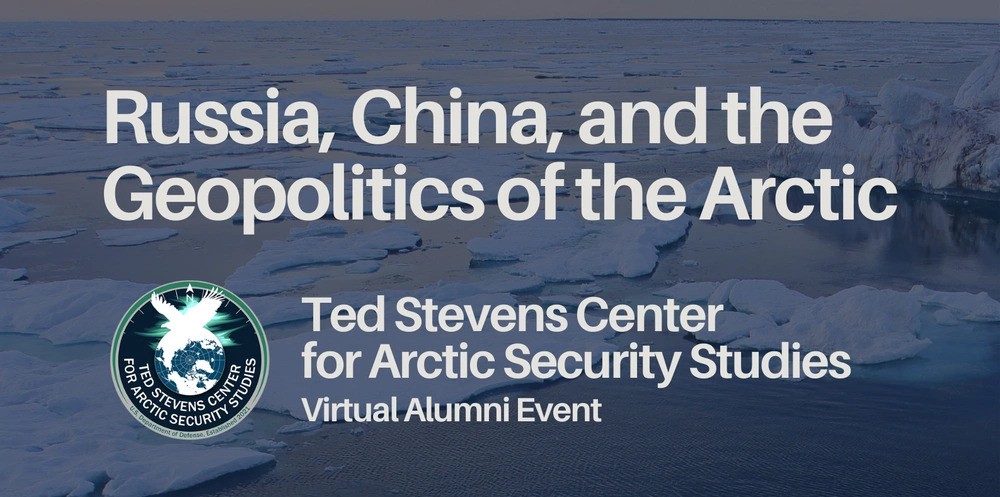“This event underscores the value of our alumni network as a forum for advancing Arctic security conversations,” said Doug Hulsey, the Alumni Specialist at TSC, during his introduction. “You represent a growing cohort of Arctic-minded professionals who are comprised of past, present, and future leaders, experts, and practitioners in and around the Arctic.”
Moderated by Dr. Matt Rhodes, Professor of International Security at the TSC, and Dr. Kate Friedman, North American Arctic Policy Advisor to the TSC, the discussion spanned issues such as Arctic cooperation, strategic competition, and the intersection of geopolitics and economics in the region.
Dr. Brian Houghton, Deputy Dean of the School of Arctic Security Studies, praised the session for highlighting alumni contributions. “Events like this directly support our mission to build strong, sustainable, domestic, and international networks of security leaders like you,” he said. “I’m really excited that today’s event is being provided by a Ted Stevens Center alum for fellow alumni.”
During the discussion, Dalziel emphasized the Arctic’s significance in global geopolitics, particularly in the context of Russia and China’s activities. “The Arctic has really become kind of a strategic existential question [for Russia],” he said. He explained that while the Arctic is a top priority for Russia due to its resource potential and strategic location, it is a secondary but still important priority for China. “The Arctic is not a primary priority for the People’s Republic of China,” he noted, “but not being a top priority doesn’t mean it’s not a priority.”
Dalziel also addressed the transactional yet impactful relationship between Russia and China in the Arctic. We underestimate pretty systematically Russia-China relations, he said, adding that while the two nations often lack mutual trust, their cooperation is rooted in shared strategic goals. It’s not a no-limits partnership, but the relationship is strengthening in practical terms, and that’s a factor for us, he continued.
The conversation explored economic and security challenges, with Dr. Friedman cautioning about the geopolitical maneuvering in the region. “We have to remain concerned about influence operations, joint influence operations, in the Arctic,” she said. “Russia and China are on the same page with regard to painting NATO as an aggressor.”
The session included a live poll asking participants about the greatest threats facing the Arctic. Operational Environment change topped the list, followed by concerns about China, Russia, and expansionism. Hulsey encouraged attendees to reflect on the discussion in light of these concerns. “Compare that to the discussion today and see if maybe that shaped your perception of what is indeed the greatest threat to the Arctic,” he said.
The event concluded with actionable takeaways for participants. Dalziel underscored the importance of collaboration among Arctic nations and international allies. “You can’t have security in the Arctic without the people who live there on board,” he said. “This isn’t just about weapons and deterrence; it’s about building nations.”
The TSC Alumni Program continues to provide meaningful opportunities for engagement and collaboration. For more information on future events, visit the center’s GlobalNet alumni page, the True North monthly bulletin, social media, and the Ted Stevens Center website.
Photo By Hannah Smith | The Ted Stevens Center for Arctic Security Studies hosted an engaging virtual event on Dec. 3 titled “Russia, China, and the Geopolitics of the Arctic.” Approximately 60 TSC alumni attended the discussion, which featured Canadian geopolitical analyst and TSC alumnus Alexander Dalziel, offering a deep dive into the strategic challenges shaping the Arctic region. (DOD graphic by Hannah Smith)

